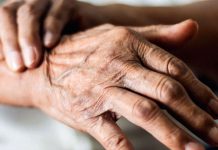A new study published in the American Journal of Public Health has found that Asian Americans tend to have worse health indicators than whites.
Typically, Asian subgroups are considered healthier than the general American population. However, the new study suggests that it is true only when you look at data collectively.
Researchers from the University of California, Los Angeles, and Brown University found that Asian Americans have at least one health disparity that is masked when data is aggregated.
They explained that the idea of Asian Americans as a “model minority” has been debunked across various areas such as educational attainment, employment, and income. However, health is a new arena for them.
Second study author Jennifer Nazareno said, “When we think of model minority, a lot of the academic research focuses on identity politics and the difference between social classes. But in terms of health disparities and health inequities, that is severely under-researched.”
The researchers looked at data from the California Health Interview Survey, which provides data on the state’s health and healthcare needs. “We specifically looked at data from about 13,000 Asians from 2011 to 2017,” said the first study author Alexander Adia.
The study found that Asians in America seemed to be healthier than non-Hispanic whites as an aggregate group. However, when the researchers disaggregated the data, Asian Americans were found to have a number of health disparities, especially among Vietnamese, Japanese and Koreans. Filipinos had the worst health among all Asian Americans.
The Asian subgroups were found to have an increased prevalence of hypertension (high blood pressure), heart disease, asthma, and delayed medication usage.
Adia noted, “In the broader narrative, data disaggregation for Asian Americans, especially as it pertains to health, has been seen as nice to have rather than as essential.”
“What we’re just trying to call out here is that the more we choose to treat data aggregation as the standard and then disaggregation as a novelty and nice to have, the more we choose to be blind to the health issues faced by the community,” Adia added.
The authors explained that relying on aggregated data about Asian Americans could address health disparities such as obesity and diabetes.
“Therefore, the aggregation of subgroup data into a single Asian category should be reframed as a choice that leads to inaccurate conclusions about health,” the researchers wrote. “Doing so ensures that efforts to protect Asian Americans’ right to health are properly informed and targeted.”






















